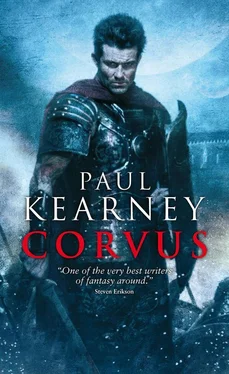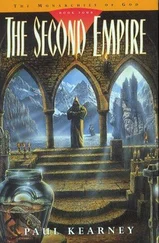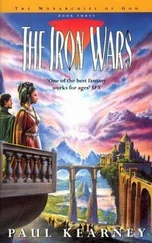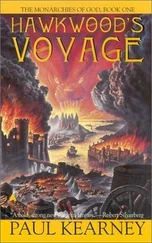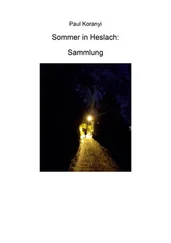Paul Kearney - Corvus
Здесь есть возможность читать онлайн «Paul Kearney - Corvus» весь текст электронной книги совершенно бесплатно (целиком полную версию без сокращений). В некоторых случаях можно слушать аудио, скачать через торрент в формате fb2 и присутствует краткое содержание. Жанр: Фэнтези, на английском языке. Описание произведения, (предисловие) а так же отзывы посетителей доступны на портале библиотеки ЛибКат.
- Название:Corvus
- Автор:
- Жанр:
- Год:неизвестен
- ISBN:нет данных
- Рейтинг книги:5 / 5. Голосов: 1
-
Избранное:Добавить в избранное
- Отзывы:
-
Ваша оценка:
- 100
- 1
- 2
- 3
- 4
- 5
Corvus: краткое содержание, описание и аннотация
Предлагаем к чтению аннотацию, описание, краткое содержание или предисловие (зависит от того, что написал сам автор книги «Corvus»). Если вы не нашли необходимую информацию о книге — напишите в комментариях, мы постараемся отыскать её.
Corvus — читать онлайн бесплатно полную книгу (весь текст) целиком
Ниже представлен текст книги, разбитый по страницам. Система сохранения места последней прочитанной страницы, позволяет с удобством читать онлайн бесплатно книгу «Corvus», без необходимости каждый раз заново искать на чём Вы остановились. Поставьте закладку, и сможете в любой момент перейти на страницу, на которой закончили чтение.
Интервал:
Закладка:
“Where did you go this year, father?” Rian asked, joining him before the sombre panoply of his armour.
He remembered this summer’s fighting, the endless marching through the dust, the incompetent wrangling of the men who were his employers. Blood blazing scarlet in the withered grass. A man with his guts spilled out, trying vainly to keep the flies off them. His men singing as they slew. Rictus closed his eyes for a second.
“It was nothing much. A lot of running around in the hills about Nemasis. Scarcely real soldiering at all.”
“What about your men? Are they – are they all alive?”
“Not all of them, my honey. That is war; not everyone can come back from it. But we sang the Paean over the pyres of the dead, and gave the losers back their kin, and so settled the thing.”
“And is Valerian all right?”
Rictus looked at her with eyes only half amused. “Valerian is all of a piece, the same as ever. Don’t tell me you still carry a lamp for him, my girl?”
Rian blushed, and her face seemed to bloom like a flower. “I was curious, is all.”
“Well, you may see him up close ere the winter comes. He and Kesero have promised to visit before the snow closes the passes.”
“Really?” Her face lit up – a daisy touched by the sun. She reached up and put her arms about his neck and kissed his scarred chin.
“Really. Now get to bed, and take your sister with you. It’s near the middle of the night.”
“In the morning I’ll show you a new cave where Eunion says the bears sleep.”
“Yes, you do that – now off to bed.”
Over the years the farmhouse had been enlarged and extended. Once it had been no more than a long room with a rude firepit and a single crooked doorway covered by a flap of goatskin. That had been in the early days. Back then Rictus and Fornyx and Eunion had clinked up the walls themselves, stone by raw stone, and used willow withies to support a turf roof. Aise had cut the turves herself, handing them up to the men as they perched on the walls above.
That first winter had been so cold that all four of them had huddled under the sheepskins together at night, so close to the fire that the wool was singed black, and wolves had prowled and snuffled just outside the door.
Since then, the place had expanded with almost every year – near on twenty of them. And in that time, Rictus had fought in fifteen campaigns, missing all but a handful of summers and springs here.
Andunnon, he called this valley of his – The Quiet Water – for as the river curled round the glen bottom beyond the house, so it broadened in its bed and became a sleepier, brown thing with trout as tawny as freckles flitting shadowlike in the sunlit depths. It had also been the name of his childhood home, far north and cast of here, near the burnt ruins of what had once been a city.
Now, Andunnon had blossomed from a single stone hut into a farm proper. They had cut back the brush and tamed the tangle of wild olive trees on the western slopes, planted vines to the east where the glen caught the best of the sun, and harvested barley in the flat rich soil of the valley floor. Bread, wine, and olives, the trinity of life, they had made here. And children, to carry that life on after them. It was more than Rictus had once ever dreamed of having. And it had cost no blood to build.
The farmhouse had annexes and extensions grafted onto it now: rooms for slaves and visitors, and for Fornyx, whose home this was also. It had become an ungainly, ill-planned sprawl of stone and turf and reed-thatch which nonetheless seemed as much part of the landscape as the river which bounded it. The farm had settled into the earth itself, part of the seasons as a man’s hand is part of his arm. No matter how far Rictus marched, and how many men’s eyes he took the light from, this, here, was where he belonged, and where his spirit found what peace his memories allowed.
Fornyx had staggered off to bed, the potent yellow wine singing in his head, and now Rictus joined Aise by the dying fire, the hounds lying sprawled and content at their feet. She had snuffed out the lamps, all save one cracked little clay bowl which would light their own way when they retired, and between its guttering light and the red glow of the sinking hearth she seemed almost youthful again, the lines hidden, the strong bones of her face brought out by the shadows.
Rictus could see Rian in that face, and Ona, and the boy who had been born between them and whose ashes were now in the earth and air of the valley itself. He reached out his hand and Aise looked at him with that guarded smile of hers and let him take her fingers in his own.
“Well, wife,” Rictus said.
“Well, husband.”
The wind was picking up outside, and Rictus knew from the whistle in the clay-chinked chimney that it was from the west, off the mountains. It would bring snow with it soon, perhaps even tonight. He almost started to ask Aise if the goats had been brought down to the lower pastures yet, but caught himself in time. She would have seen to it already, as she saw to everything while he was away.
“The sow had a litter of six,” Aise said, withdrawing her hand. “We slaughtered two, sold the rest down in Onthere. We lost two kids to the vorine, but in the spring Eunion and Garin found a den north of Crag End hill, and killed the vixen and her cubs. There have been no more of them about since then.”
Rictus nodded.
“We had a good pressing, a dozen jars. I made that olive paste you like, with the black vinegar from the lowlands – we got a skin of it when I sold the pigs.”
“You should not have sold Veria,” Rictus said quietly.
Aise’s face did not change.
“She was discontented, harping on about her dead baby, and she was unsettling Garin with her keening.”
“A dead child is no light thing,” Rictus said, heat creeping into his voice. Aise seemed not to hear him.
“I had to go into the chest for gold to make up the difference, but Styra is a better prospect. She’s young, she has good hips, and Garin will father a child on her soon enough.” She paused. “Unless you would prefer to plough her furrow yourself.”
Rictus looked at his wife in baffled anger, searching her face in the red firelight.
“I don’t fuck my slaves, wife. It is something I have never done.”
“I was your slave; you fucked me,” Aise said coldly.
Something like a chill went down Rictus’s back. They had gone straight back to the old caches of forgotten weapons stored in their hearts, and unearthed them all sharp and glittering again.
“It was different then – we were different. Gods below, woman, I will not go over this again the very night I appear back home. You are the stone I have built this life here upon. What’s done is done.”
“And through the year’s campaigning, do you have some camp girl service you at the end of the day?”
“You know I do, on occasion – I’m a man. I have blood in my veins.”
“When you left, you said it was a summer campaign, no more – and here you are with almost a year and a half gone by. You said it was over, Rictus. No more soldiering. You said you would put aside the scarlet and stay here with me.” “I know.”
“We need no more money- we have everything here a man could want.”
“Except a son,” he snapped. And the instant he said it he could have slapped his own face. Such stupid warfare, as fruitless as the year’s campaigning.
Aise stared into the fire, seeming somehow to wither before him, though she did not move.
“I should not have said that – I had no cause,” he said, reaching for her hand again. She gave it, but it was limp in his fist; obedient, no more.
“Men want sons,” Aise said lightly. “That is the way of life. It’s how they make themselves remembered. A daughter leaves the house, and she becomes someone else’s family. A son continues his own.” She faced Rictus squarely, her face as blank as a blade. “You should take another wife.”
Читать дальшеИнтервал:
Закладка:
Похожие книги на «Corvus»
Представляем Вашему вниманию похожие книги на «Corvus» списком для выбора. Мы отобрали схожую по названию и смыслу литературу в надежде предоставить читателям больше вариантов отыскать новые, интересные, ещё непрочитанные произведения.
Обсуждение, отзывы о книге «Corvus» и просто собственные мнения читателей. Оставьте ваши комментарии, напишите, что Вы думаете о произведении, его смысле или главных героях. Укажите что конкретно понравилось, а что нет, и почему Вы так считаете.
